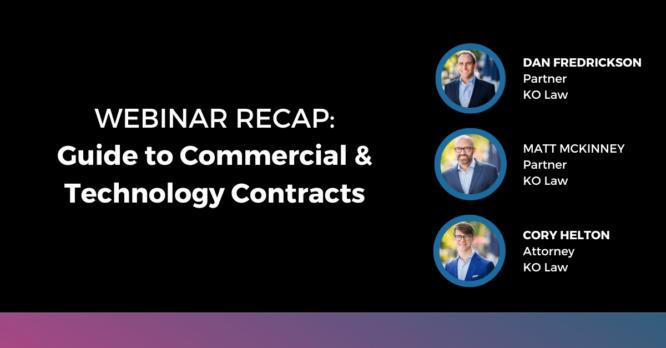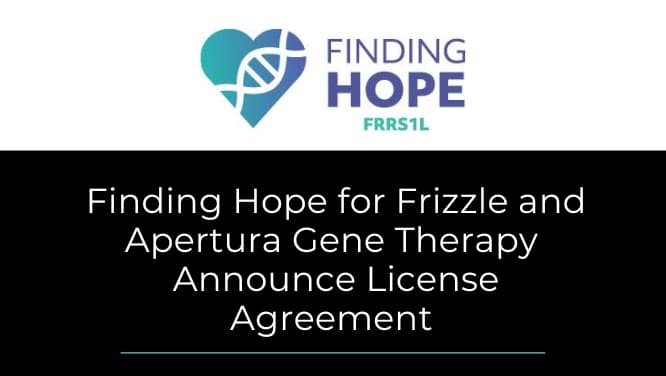Webinar Recap: Guide to Commercial & Technology Contracts

- KO Firm
- |
- April 30, 2024
Our recent “Guide to Commercial & Technology Contracts” webinar featuring KO partners Dan Fredrickson, Matt McKinney, and attorney Cory Helton covered key elements of a solid contract, how to navigate common contractual issues and risks, and how to accelerate contracting and sales cycles. Check out the recap and access the full video recording below for practical legal and business tips and best practices.
Streamline Negotiations with Standard Agreements
Whether you provide consulting or professional services, a SaaS offering, or on-prem software, developing a standard form agreement can streamline the negotiation process. This exercise helps to better understand your offering and value proposition and often involves aligning with various stakeholders like your finance, product, and legal teams. Putting together a standard agreement not only streamlines the negotiation process but also fosters a deeper understanding of your cost structures, operational realities, and risk tolerances.
Even when negotiating with larger enterprise customers who often prefer their own contracts, having a standard agreement upfront serves as a valuable playbook, outlining priorities, preferred positions, and potential deviations. This helps mitigate negotiation friction and reduce back and forth during contract negotiations, setting a solid foundation for productive discussions.
Context is Key
Context is pivotal in contract negotiations. Lawyers are more effective when they understand the broader picture and collaborate closely with sales teams. Make sure that your team and your lawyers understand the big picture including business drivers, deal priorities, and what’s most important to your business.
Take Steps to Reduce Risk and Contracting Friction
Risk and contracting friction often go hand in hand. Understanding both your business’ priorities and the customer’s concerns allows for proactive problem-solving and collaboration.
For companies, it’s important to understand your pain points and your walk-away items, e.g. ownership of intellectual property, use of generative AI, data rights, and more. This helps to identify potential deal friction points early and allows you to educate the customer on your positions, which is crucial to getting deals done.
Proactively educating potential customers about your product or service expedites the contracting process and builds trust. Anticipating customer questions and proactively communicating can reassure customers, help alleviate tensions, and expedite negotiations.
Considering both short-term and long-term implications for a deal provides a comprehensive framework for evaluating terms: the short-term lens of getting the deal done and the longer-term lens of how the contract will influence future investment, financing, and exit plans. By aligning risk allocation with broader business goals, companies can negotiate agreements that not only facilitate near-term objectives but also enhance strategic value in the long run.
Leverage Sales Expertise
There’s a tendency to view legal and sales as being in tension, but collaborating with the sales team throughout the contracting process is valuable to push deals forward. Equipping sales teams with a thorough understanding of the contract and key terms empowers them to shepherd deals forward, with fewer gate keepers and can help minimize protracted negotiations. If and when you hit a sticking point during negotiations, consider inviting the sales team back into the process to get aligned. By bridging the gap between legal and sales, businesses can leverage collective expertise to drive deals to successful outcomes.
Tune in to the Full Webinar Video Recording Below:
Use Collaboration, Context, and Communication to Drive Successful Contract Negotiations
In summary, successful contract negotiations hinge on collaboration, context, and proactive communication. By fostering alignment between legal and sales, and proactively communicating with key stakeholders and clients, businesses can navigate negotiations efficiently, mitigate risks, and secure agreements that propel their strategic objectives forward.
Dan Fredrickson and Matt McKinney are transactional partners at KO Law. Cory Helton is a transactional attorney at KO Law. Reach Dan at [email protected], Matt at [email protected], and Cory at [email protected].




